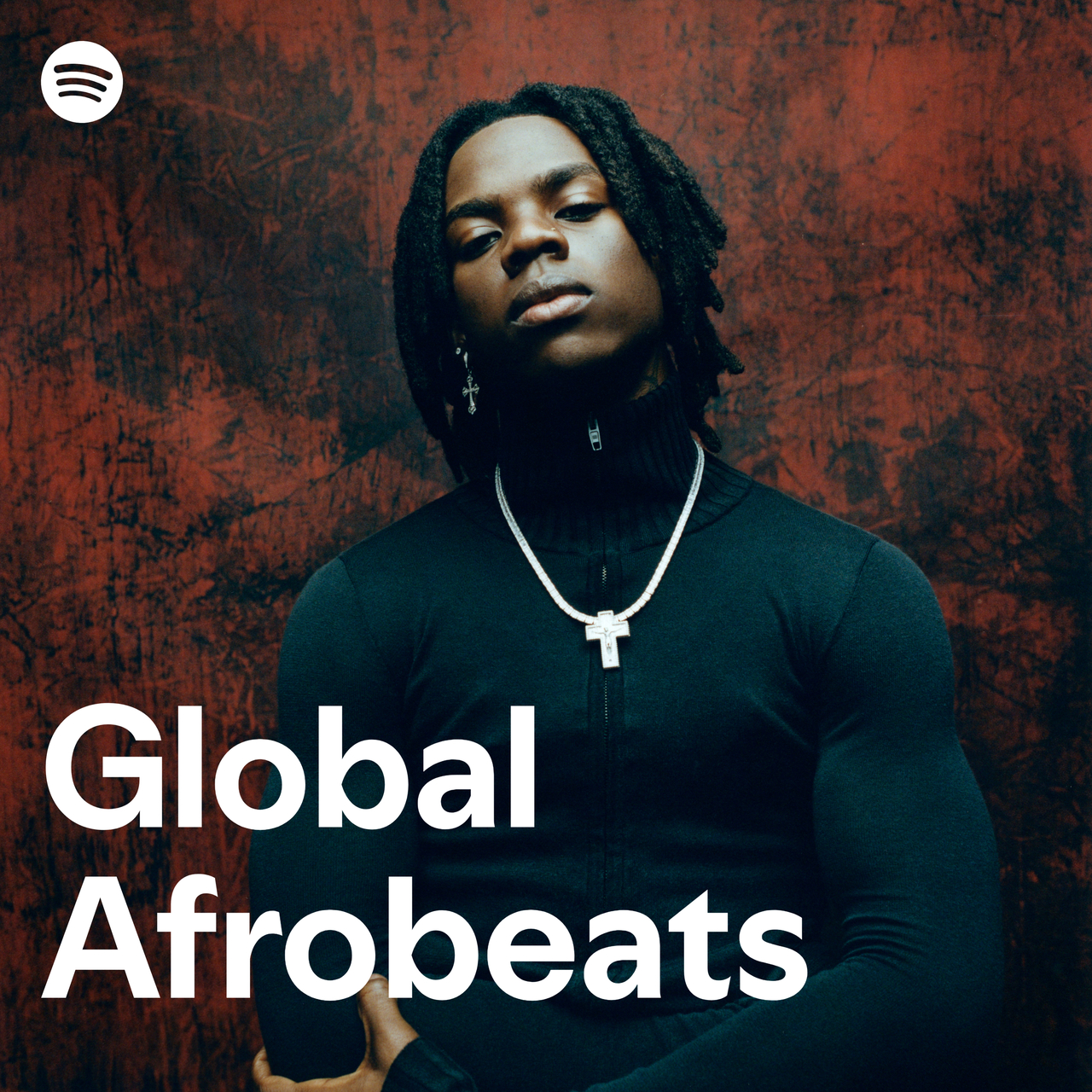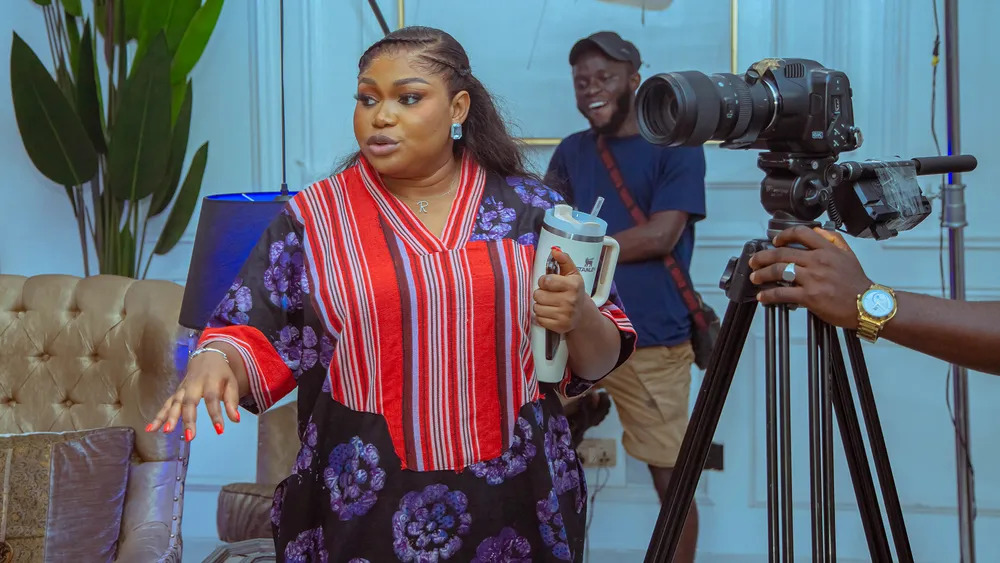Broadcasting
How Spotify Keeps Nigerian Fans Connected Through Music Even When Physically Apart

Music has always been a universal language helping people through the ages to communicate and connect without the need for added conversation or even words.

Music can help us unlock the deepest parts of ourselves, and act as a unifier. Bringing people together to share their thoughts, feelings and emotions whether they are suburbs, cities or continents apart.
This has never been truer than in recent times. Removing the opportunity for people to connect in person has amplified the need to create experiences to still engage with those closest to us in ways that are both meaningful, emotive and transcend distance.
Several surveys conducted over the past year have showcased how the Gen Z audience in particular have been craving shared communal experiences.
Over the same period Spotify has also noted an increase in content streaming as people seek out ways to stay entertained and informed as well as connected.
The outbreak of COVID-19 pandemic has, as expected, led to a significant increase in e-commerce and other online activities in Nigeria and across the globe. The subscription to music streaming apps surged by 44%, with usage of Spotify increasing the most by 83%.
Spotify has also seen an increase in the number of people using the platform to co-create and share audio content – using their favourite music as a key communication form to create those engaging experiences.
Collaborative playlists are a fun and easy way for users to co-curate playlists with friends, by each adding their favourite tracks.
Creating a playlist that has a ‘feel’ of each user gives people the experience of being together. The popularity of collaborative playlists across sub-Saharan Africa was showcased in recent data released by Spotify.
Over the past 90 days, collaborative playlists in Nigeria increased by 35%, with “Far Away” by Nigerian Afro-fusion singer Brainboy being the most played in the country.
Only South Africa and Kenya received more plays in Africa, with South Africa’s “The Business’’ by Tiësto being the most played track in local collaborative playlists in that country, and “Calling My Phone” by 6LACK & Lil Tjay taking the most plays in Kenya.
Ghana, Uganda and Tanzania also saw an increase in the plays on collaborative playlists over the period.
Another wonderful way to share is through Group Sessions, which allow for the simultaneous listening of songs and podcasts. In the past 90 days, South Africa had the highest group session listening rate across sub-Saharan Africa.
The most popular track in group sessions in Nigeria was “Dimension (feat. Skepta & Rema)’’ by JAE5. In South Africa, it was “05:12 Space Caress’’ by Danger while in Kenya, it was “Baby Bumblebee’’ by Julie Gardner.
“Features such as collaborative playlists and group sessions aid music discovery – a key imperative for Spotify. As Spotify’s presence and popularity continues to grow across Africa, we are encouraged that our audience are continuing to uncover and explore the many features on offer that can only amplify their listening experience.
Spotify is so much more than simply an audio streaming service. Users can ‘’soundtrack their lives’’ from the moment they wake up to when they go to sleep at night, and everything in between and seamlessly share this across other social media apps like Facebook and Instagram.
“The platform provides an opportunity to connect through a shared love of music, providing comfort to many over the isolation of the past months,” says Phiona Okumu, Head of Music, Sub Saharan Africa.
Broadcasting
Spotify Unveils Global Afrobeats Playlist, Celebrates Genre’s Worldwide Rise

To amplify Afrobeats’ status as a global powerhouse, Spotify today announced the launch of its new Global Afrobeats Playlist. The new Global Afrobeats Playlist is a celebration of a sound that has moved from the club to the charts and beyond, influencing global fashion, dance, and culture. In direct response to the genre’s global growth, this playlist is driven by the passion and influence of listeners worldwide.

Beyond Africa, Afrobeats is seeing a massive increase in Asia, with Indonesia, India, the Philippines, and Thailand becoming major hotspots. In 2020, these markets experienced significant growth: Indonesia at a 4,530% increase, India at 1,650%, the Philippines at 1,492%, and Thailand at 1,370%. The genre’s popularity in the Latin America region has also seen a remarkable 183% year-on-year growth in 2025, underscoring its broad and international appeal.
Interestingly, Spotify data reveals a 135% growth in the number of user-generated playlists that use “Afrobeats” between 2020 and 2025. This is a movement of fans acting as tastemakers, building the genre’s global footprint one playlist at a time. Listeners are not just consuming the sound; they are curating, sharing, and exporting it worldwide.
This digital takeover is the work of a new generation. Gen Z, with an appetite for new sounds, has made playlists their go-to for discovery. They have turned playlists like Hot Hits Naija, African Heat, and Gbedu into global gateways. These playlists are the top three playlists for young Afrobeats listeners globally, reflecting the genre’s diverse energy, from club anthems to smooth crossovers. Hot Hits Naija alone has pulled in over 20 million global plays.
The top three playlists shaping Gen Z listening in the genre’s birthplace, Hot Hits Naija, Gbedu, and Street Energy capture the raw, street-driven pulse of Nigerian youth culture. The Afro Adura playlist, for instance, saw its average monthly plays jump by 51%, a clear sign that the genre’s appeal is both broad and deep.
“The launch of our Global Afrobeats Playlist isn’t about Spotify leading the charge, it’s about us following the fans,” says Benewaah Boateng, Spotify’s Senior Music Editor, Sub-Saharan Africa. “The data shows a wave of listener-driven curation, and this playlist is our way of celebrating that momentum. We are simply giving due recognition to the voices of a new generation who have made Afrobeats a global force, and we are thrilled to provide a definitive home for this vibrant and ever-evolving genre.”
The new Afrobeats Global playlist is a nod to the fans who built this movement from the ground up, and a green light for Afrobeats to keep climbing.
Broadcasting
RoW Waiver: The Hidden Backbone of Anambra’s Digital Revolution

By Chukwuemeka Fred Agbata, CFA
Across Nigeria, one of the biggest hurdles to broadband expansion has been the prohibitive cost of Right of Way charges: the fees telecom operators must pay to lay fibre-optic cables across state-owned land, which drastically slows down digital infrastructure rollout.

In 2022, one of the earliest and boldest steps taken by Prof. Charles Chukwuma Soludo, CFR, was the removal of the Right of Way (RoW) charges for laying broadband fibre across Anambra State.
At the time, it may have seemed like a quiet policy move, but in reality, it laid the foundation for the state’s ongoing digital transformation journey.
The logic behind this move is simple but powerful. By waiving RoW charges, the administration sent a clear message to telecom operators, broadband providers, and investors: Anambra is open for digital business.
This single decision has paved the way for fibre-to-home deployment, the expansion of 5G infrastructure, and faster, more reliable internet across communities, ultimately boosting the ease of doing business.
Perhaps one of the most visible testaments to this visionary policy is the ongoing roll-out of the “Solution Free Wi-Fi” initiative, which is democratizing internet access for students, traders, civil servants, and everyday citizens, alongside the digitization of government processes that are making service delivery faster and more transparent.
Anambra is reaping the dividends of a forward-thinking approach.
What seemed impossible a few years ago is now a lived reality: Teachers are being equipped with digital tools, enhancing lesson delivery and preparing students for a technology-driven future.
Civil servants now work with smarter systems, making the civil service more efficient, transparent, and responsive to citizens, while young innovators are finding an enabling environment to create solutions and businesses that improve lives and shape the future.
What began as a policy shift has cascaded into practical, people-centred benefits that are redefining how Anambra learns, works, and governs.
This backbone is also unlocking new opportunities in telemedicine, e-learning, smart agriculture, and more. In short, the Soludo-led administration’s decision aligns perfectly with the governor’s vision of building a liveable and prosperous megacity, anchored on technology.
More notably, Anambra’s forward-thinking move aligns it with both national and global best practices. In Nigeria, states like Lagos, Ekiti and Kaduna that reduced or eliminated RoW fees saw significant surges in broadband penetration and digital services. Internationally, countries like Kenya and Rwanda demonstrate how lowering barriers for telecom operators fuels widespread connectivity, attracts investment, and spurs innovation.
Anambra’s decision places it firmly within this league of forward-looking regions, positioning the state as not just a beneficiary of technology but a driver of digital growth in Nigeria.
This is not just about cables in the ground, it’s about creating an ecosystem where technology thrives and opportunities multiply.
Anambra is proving that the future truly belongs to states that embrace technology not as a slogan, but as a strategy.
The state’s journey toward becoming a digital hub in Nigeria is still unfolding, but the foundation has been laid, strong and unshakable, by a single, daring choice.
Broadcasting
Telling Stories in the Era of the New TV

By Ruth Kadiri
When people ask me what the secret is to making films, my answer is simple: the trick is always in the story. But of course, it is never only that simple. A good script is a given, as are strong casts and the right team behind the camera. Those are the foundations. Yet over time, I have come to realize that filmmaking today requires us to think beyond the script and the set. We must also think about the screen, the audience, and the journey of the story once it leaves our hands.

As a filmmaker, I am often asked what I have learned along the way; what I would tell someone starting out, or even those who have been working as long as I have. Attending the YouTube TV/Film Day in Lagos gave me another opportunity to reflect on how the industry is shifting and what keeps me grounded. These are some of the lessons I now carry with me.
1. The trick is always in the story
No matter the format, length, or platform, it begins with the story. A viewer will forgive budget limitations, new talent, or even unfamiliar settings if the story connects. But if the story is weak, no amount of production polish will keep people watching. As filmmakers, our first task is to craft stories that reflect real lives and emotions. A character’s triumph, a family’s struggle, a moment of laughter. These are what audiences hold on to long after the credits roll.
2. Never compromise on quality
Quality is not about big budgets alone. It is about respect for the audience. In a world where viewers can choose from thousands of films and series with a click, they will not wait for a story to “get better later.” That means sound, lighting, editing, and acting must all meet a standard that keeps them engaged from the start. Even when working with limited resources, I push myself and my team to raise the bar.
3. Beyond the production, think about the screen
In the past, when we spoke about “the screen,” we meant cinema or television. Those were the spaces where stories lived, and where audiences gathered. Today, that definition has changed. The screen could be the phone in someone’s hand on a bus, a laptop late at night, or a connected TV in the living room. For many Nigerians — especially younger audiences — YouTube has become that new television. It is where they discover new films, revisit old favorites, and share what they love with others.
As a filmmaker, this shift has changed the way I create. I no longer think of my work as tied to one channel of distribution. Instead, I ask: how will this story feel on a mobile phone? How will it hold attention on a larger screen at home? YouTube is central to answering those questions, because it gives me the freedom to design for different screens while keeping the same story intact.
4. The audience is global, even if the story is local
One of the greatest gifts of this digital era is the ability for Nigerian stories to reach audiences in places I may never visit. Over 70 percent of watch time on Nigerian YouTube channels comes from outside the country. That means a story set in Benin City or Kaduna can resonate in London, New York, or Johannesburg. The key is to stay authentic. Our culture, our humor, our languages are not limitations. They are the very things that make our films compelling to the world. Subtitles and translations help, but at the core it is authenticity that travels.
5. Language is power
Nollywood is rich with languages and dialects, and I believe in using them boldly. Audiences everywhere are increasingly open to watching subtitled films. Korean dramas, Spanish thrillers, Indian romances — they all prove that language is no longer a barrier. For us, this is an invitation to lean into our diversity. By telling stories in Yoruba, Igbo, Hausa, or Pidgin, we are not limiting ourselves. We are showcasing the depth of Nigerian culture. And when paired with platforms like YouTube that make subtitling and translation simple, we can connect with people who do not speak our languages but still understand our emotions.
6. Power belongs to the storyteller again
Perhaps the most inspiring change for me is how much control filmmakers now have. We no longer have to wait for gatekeepers to decide which stories will be told or which audiences will see them. With digital platforms like YouTube, we can release directly to our viewers, build communities around our work, and grow our craft in real time. It is not easy. It requires consistency, strategy, and resilience; but it is empowering. For me, that is what keeps me creating.

 Telecom1 day ago
Telecom1 day agoMTN Nigeria Empowers over 3,000 Customers with ₦579m in Mega Billion Promo

 News1 day ago
News1 day agoSuri’s Memoir Sparks Visionary Dialogue with Zimbabwean Ministers on Africa’s Future

 E-Financial1 day ago
E-Financial1 day agoUnion Bank of Nigeria Completes Merger with Titan Trust Bank

 E-Financial1 day ago
E-Financial1 day agoAMMBAN Faults CBN’s 60-day Deadline on PoS Geo-Tagging

 News1 day ago
News1 day agoAdlantique Named Nigeria’s Best in Digital Marketing, Content Creativity @ 2025 Beacon of ICT Awards

 General News1 day ago
General News1 day agoAirtel Africa Foundation Presents Nigerian Students with Tech Scholarships

 General News1 day ago
General News1 day agoCAC Postpones New Fee Implementation

 Telecom1 day ago
Telecom1 day agoSwitch Solutions to Lead Cybersecurity Innovation @GITEX Nigeria 2025


























